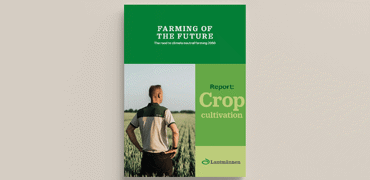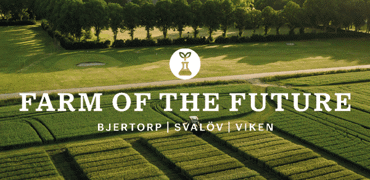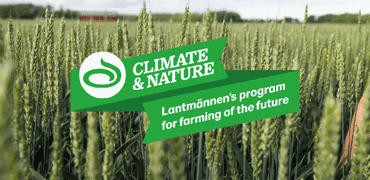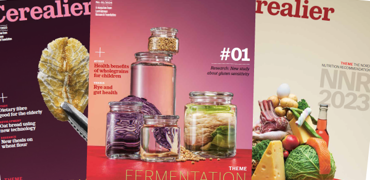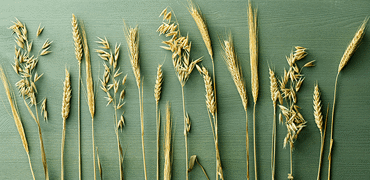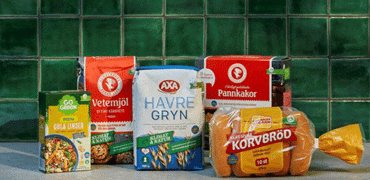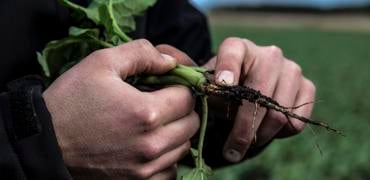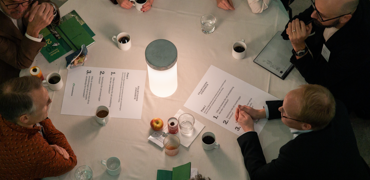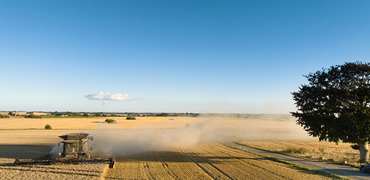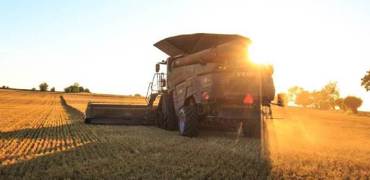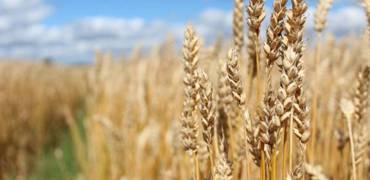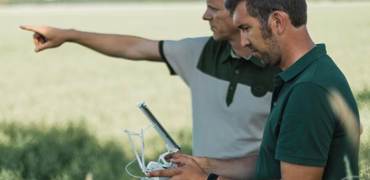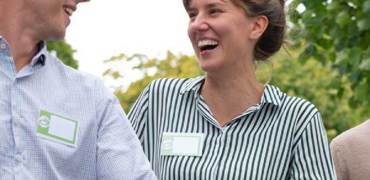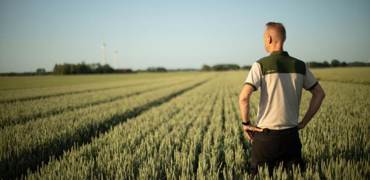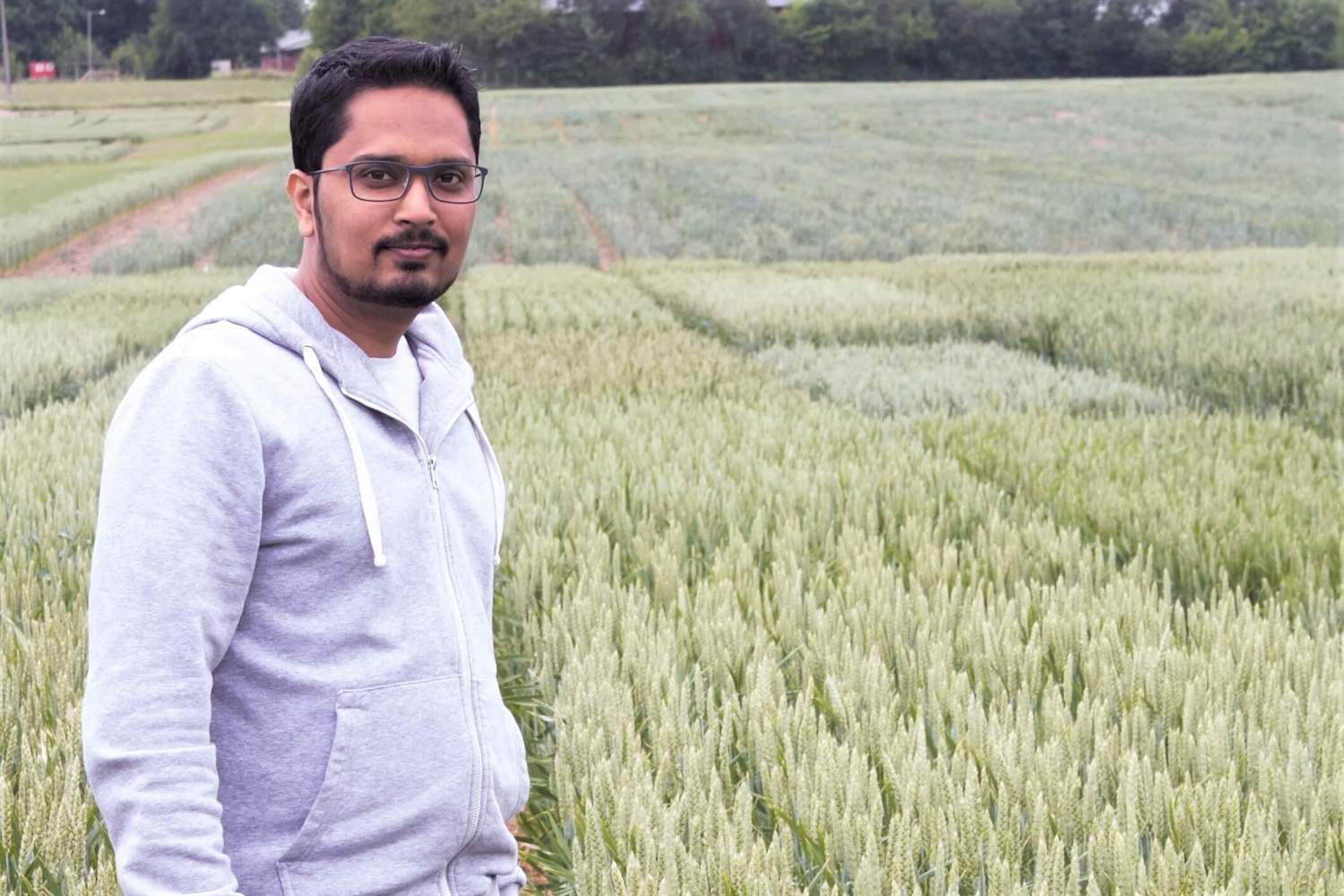
Aakash Chavade, researcher at the Swedish University of Agricultural Sciences (SLU),
in southern Sweden.
For almost 15 years, Aakash Chawade, Researcher at SLU Alnarp, has cooperated with Lantmännen and Lantmännen Research Foundation in different projects within plant breeding. The first collaboration began when he was a doctoral student at the University of Gothenburg, where he was researching the winter hardiness of oats. Since then, they have reconciled in many successful projects.
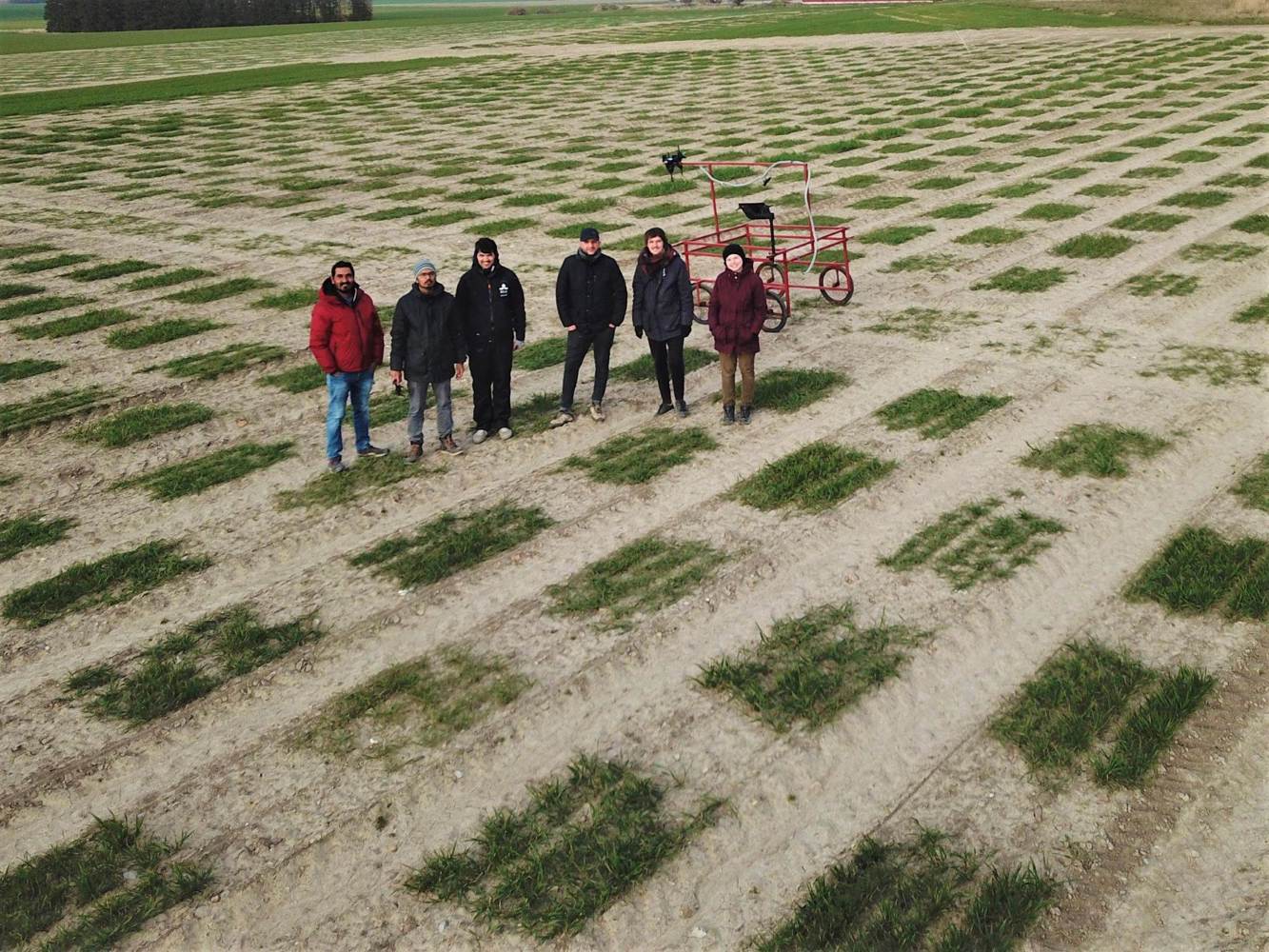
With fellow researchers, in the field.
“I appreciate working with the Lantmännen Research Foundation because they are actively involved, and they have a long and solid experience in many different types of projects. This makes their input and feedback very valuable throughout the process. Another aspect of working with them, is that they don’t hesitate to back high-risk project if they identify long term potential of what the research can bring,” says Aakash Chawade.
"The best thing about working with the Lantmännen Research Foundation is their experience and the fact that they are actively involved. Their input and feedback offers a great contribution to the project".
Aakash Chawade was born and raised in Hyderabad in southern India, but his interest in genomics brought him to Sweden in 2003 to get his master’s degree in bio informatics. In 2011 he completed his doctoral degree in biology and has since 2015 been a researcher at SLU Alnarp. Since his days as a doctoral student, Lantmännen has been an important partner. They have worked together in over a dozen projects in total - some financed by the research foundation - and in other larger programs where Lantmännen has been one of several parts.
Why did you become a researcher?
“I studied genomics since I was curious about how genes work. When I came to Sweden, I started studying bio informatics where you do big data analysis to understand how a whole organism with hundreds of genes responds to a certain environment during its growth period. The more you study, the more curious you get about for instance what happens if there is a change in environment. So, my curiosity is what led to become a researcher.”
You research about plant breeding; how would you describe your area of research in more detail?
“I study the development of methods to speed up plant breeding in different crops. For example, we develop methods that create better resistance against disease, as well as methods to grade and identify plants more efficiently.”
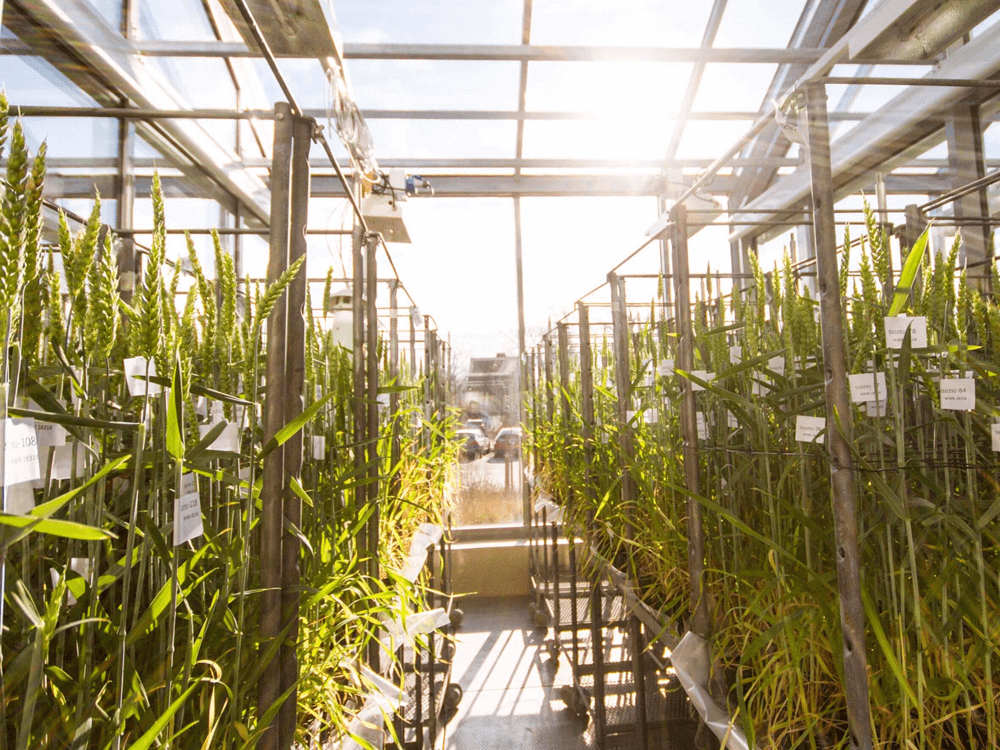
In Aakashs research, access to Lantmännens know-how and
facilities has been very valuable.
What’s most exciting about your work?
“Our partnerships with processing companies and advisers, which in the end what creates an understanding for what we do, and helps us identify new challenges. Another thing is the possibility to educate and train younger students who want to learn about the subject and reach their goals within my group at SLU. That’s exciting!”
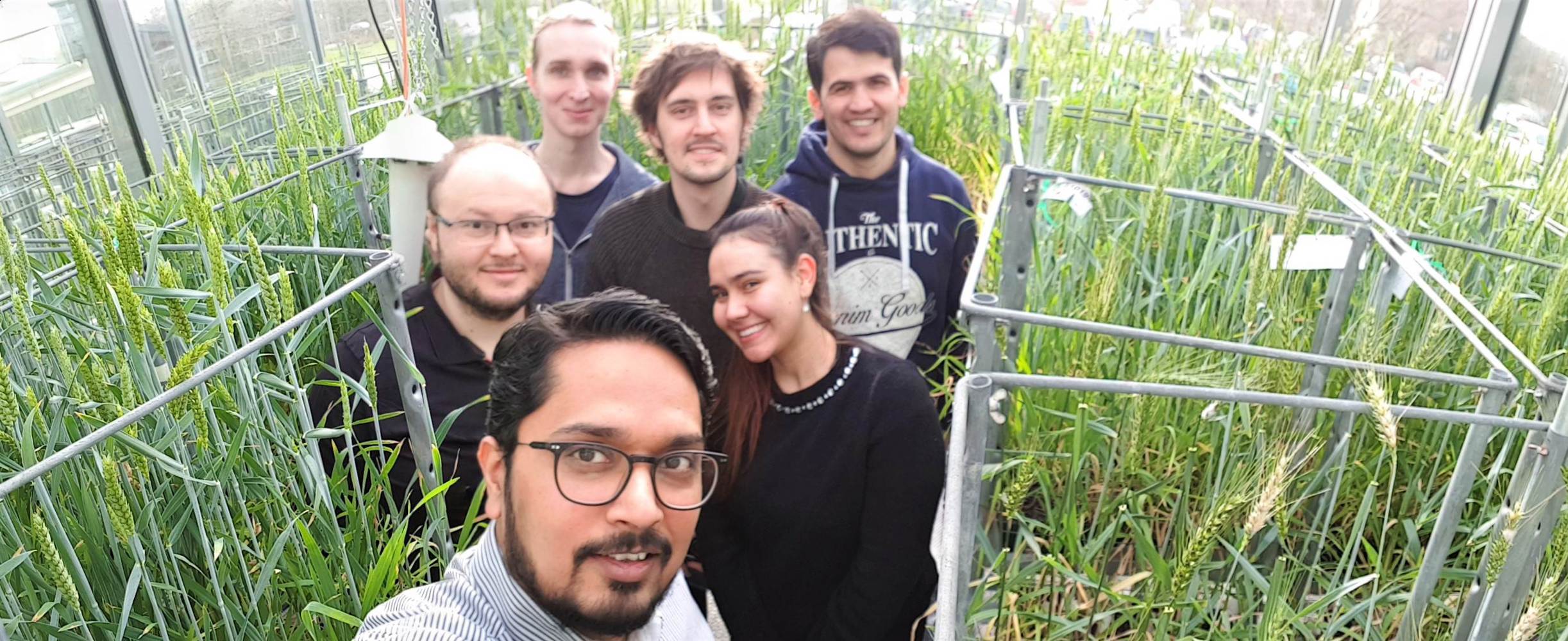
With colleagues, in the middle of ongoing tests.
What’s your current research about?
“Right now, I am working on different projects. One is about resistance breeding in wheat with the aim to reduce the need for pesticides. This we do in collaboration with Lantmännen. We have taken the step from research to application and have already started the establishment in Lantmännen’s Greenhouse – it’s a big step for the project.
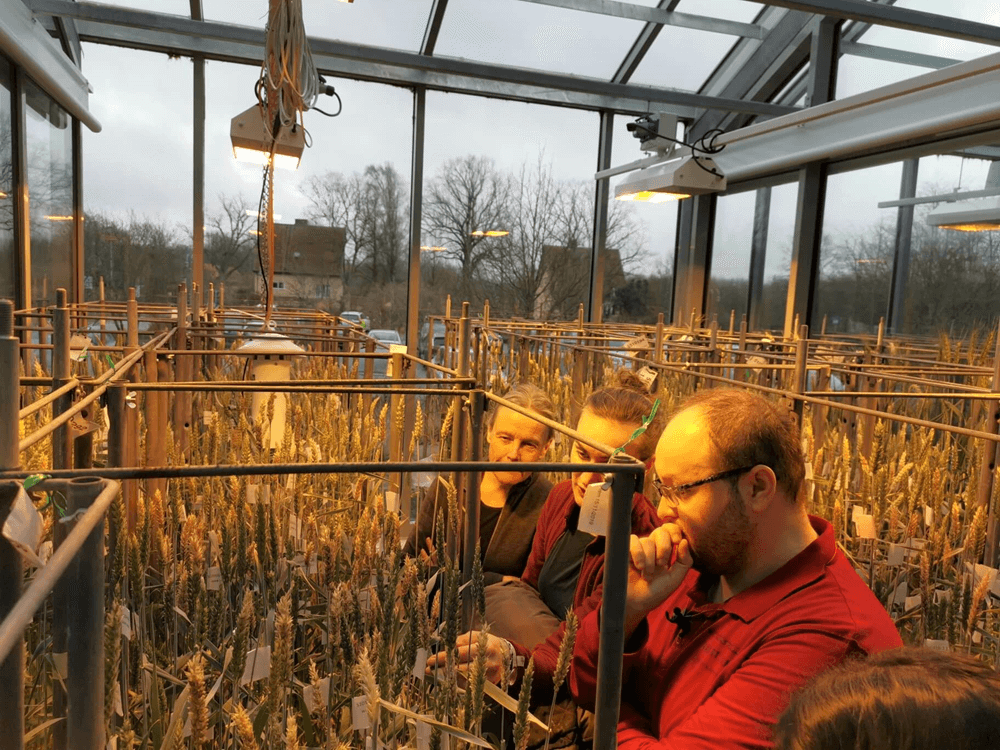
Trials at Lantmännens greenhouses had the research take a big leap forward.
You have collaborated with Lantmännen and the Research Foundation for almost 15 years. How come there have been so many projects?
“Research collaborations can often be high risk projects; you don’t know if it will lead to anything useful. Despite that, you need patience, a long-term strategy, and a vision for the future. Lantmännen offers an excellent combination of all these parts.”
What does the Lantmännen Research Foundation contribute with more specifically?
“They are actively involved in the projects, you get a lot of feedback and input - both in practice and when it comes to what the research can lead to in the future. The foundation has great experience in handling different types of projects, so they know what works and what doesn’t, which is vital in moving forward in a project. In addition, they are very generous when it comes to providing access to their trials and other resources in the lab that enable the researchers to test their ideas.”
What’s most enjoyable about being a researcher?
“To have the possibility to be curious about new things and to be able to continuously test and study my ideas. That freedom is the most enjoyable.”
Do you have any tips to other researchers who are thinking about approaching Lantmännen’s Research Foundation?
“One important piece of advice is to be open to ideas and have a long term, consistent dialogue with the foundation in order identify challenges and solutions together. It’s a lot more efficient than finding a challenge on your own and contacting them once its already established.”
. . .
Do you have questions about this research collaboration?
Contact Pär-Johan Lööf, Research Manager Lantbruk och Maskin, Lantmännen Group R&D, par-johan.loof@lantmannen.com






